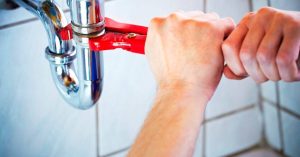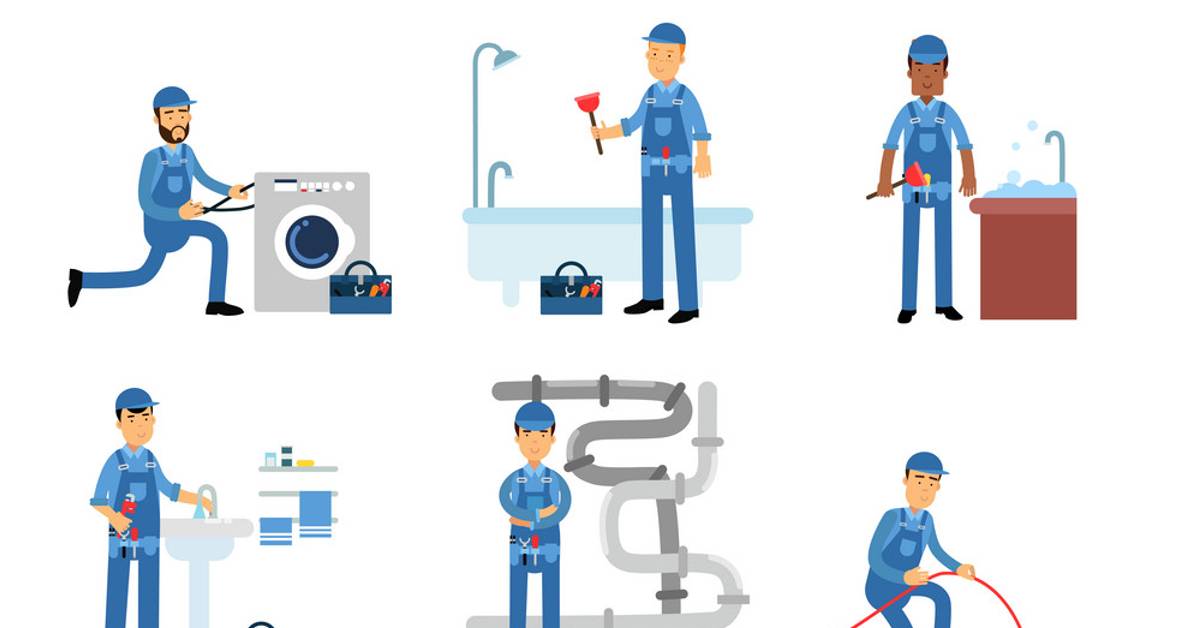Plumbers Maintenance: All You Need to Know Home.
Prepare to become a master of plumbers’ maintenance tasks with this detailed post. Discover the best methods for diagnosing and repairing issues fast! E.g. Drain, Pipe Leaking, also Bathroom, Kitchen, etc. Contact With EAGLE TRENDS.
Test the Water Pressure
The first step to diagnosing any plumbing issue is to check the water pressure. This can be done with a water pressure gauge. Which you can buy in most hardware stores. It could indicate a clogged pipe that needs to be cleared out or an obstruction of some kind. Check the pressure to know about your plumbing system is good or not. Prepare to become a master of plumbers’ maintenance tasks with this detailed post.
Inspect for Leaks
The next task in diagnosing and repairing common plumbing problems is to inspect for leaks. To do this, start by inspecting pipes and fixtures around the house, and watching carefully for any signs of corrosion or damage. That might signal a leaky connection or joint. You should also keep an eye out for any wet spots under cabinets, along baseboards, and in other hard-to-reach places. Where moisture might have collected due to a leaky pipe.
Clean Out Drains
Most people don’t stop to think about their drains until there’s a plumbers maintenance problem. But when there is one it can cause major headaches! Regular drain cleaning is essential for preventing clogs from forming in plumbing systems, as well as removing bacteria buildup from drains and keeping them clear of debris. Before they cause problems. It’s best practice to use hot water and chemical cleaners regularly (but sparingly) throughout each month. Particularly in kitchens and bathrooms where drains tend to see a lot of action!
Check Pipes For Corrosion
Another important task plumbers need to do regularly is checking pipes for corrosion – both inside and out – so they can take appropriate action. If necessary before serious damage occurs! To check exterior pipes you’ll need an etching tool while an inexpensive meter should work on interior ones; look out for discoloration or flaking/rusting surfaces. Which could signify corrosion has already begun occurring somewhere within the system!
Replace Old Fixtures
Older houses often contain outdated fixtures that are no longer up-to-date with modern requirements; replacing these with new ones could save on energy costs as well as help prevent issues. E.g. dripping taps due to contact wear over time! Check valve parts such as cartridge stems, washers & O-rings every year too just so everything stays running smoothly without unexpected component failure occurring mid-repair job, (which would likely end up costing more money than simply updating fixtures at regular intervals)
Perform plumbers Maintenance On Tanks And Sump Pumps
Tanks & sump pumps contain all sorts of components – couplings, gaskets, seals, etc. Which require periodic plumbers maintenance in order to keep them performing at their best & avoid costly replacements down the line; additionally having tanks inspected annually helps prevent any future breakdowns due to faulty connections between pipes or cracks developing internally through age-related deterioration, etc & ensures everything works perfectly each time they’re called upon (i could potentially help save thousands on repairs!)
Make Sure You Are Up To Date With Best Practices
Finally, it’s important to remain current on best practices. When it comes to maintaining/repairing plumbing systems; this includes taking classes online / attending workshops where possible & researching industry trends regularly so that you stay ahead of any potential areas downfalls. Before undertaking complex repairs! Knowing what techniques are safe & effective today will become invaluable for plumbers maintenance. When faced with tricky scenarios requiring professional-level skillset application – plus it never hurts brushing up procedural knowledge frequently either 😉

Keep your home’s plumbing running smoothly with our comprehensive guide to effective plumbing maintenance. Here, you’ll learn 10 essential tips for hassle-free upkeep.
Unclog Drains with Baking Soda and Vinegar.
For a quick and easy way to unclog your plumbing, try baking soda and vinegar. Start by pouring half a cup of baking soda into the drain, followed by half a cup of white vinegar. Cover the drain for 30 minutes before flushing it out with hot water.
Keep Grease Away from Your Sink.
Just like oil and water don’t mix, so do fats, oils, and grease (FOG) with our plumbing systems. FOG creates a build-up in the pipes that can lead to clogging. If not taken care of properly. Instead, pour the grease into an empty container or just wipe up the excess grease with a paper towel. Before washing dishes so they don’t slip down the drain later on.
Check Outdoor Pipes Regularly.
To prevent any unexpected flooding or bursting due to cold temperatures during winter months, make sure all outdoor pipes are frequently. Checked for cracks or damage caused by low temperatures or weather changes. Before turning off any outdoor faucets for the winter season. Make sure these areas are sealed too to ensure optimal pipe performance throughout the year.
Inspect Your Sump Pump.
If your property has one—regularly for potential blockages and rusting parts that can cause problems over time. Inspections should be done at least twice a year: once during spring when rains start again, and once in late fall/early winter prior to colder weather setting in for good.
Fix Water Leaks Quickly.
If you experience an unusual spike in your water bill or notice wet spots. Where there shouldn’t be any on your property, then you may have a leak somewhere along your pipes! Stop it as soon as possible before it gets worse by calling plumbers maintenance immediately. Who can help assess and fix the problem right away?
Install Water Pressure Regulators.
A water pressure regulator is designed to reduce. How fast water passes through pipes into your home. So that fixtures work correctly without putting too much strain on them over time. Something particularly important if you reside in an area with naturally high-pressure levels due to elevation changes etcetera. Installing this device is best left to professionals. Who will be able to accurately measure which ones would best suit your needs even if they aren’t mandatory(depending on local regulations)?
Replace Old Corroded, Plumbing Parts.
Corrosion is inevitable with old plumbing parts; thus it’s important checkups occur regularly. Especially if you live in an older home––in order to detect portions that need replacement. Before more damage occurs due cause contaminated liquid passes through them! Thankfully most common replacements such as swapping out corroded washers don’t take long but anything else should be handled only by specialists certified contractors etcetera plumbers maintenance.
Use Enzymatic Drain Cleaners.
Instead of chemical cleaners filled with harsh bleaches & acids try using enzymatic cleaner additives instead! The natural enzymes within these products can break down various organic deposits found within drains like food particles & residue without harming either. They (the pipes)or causing unpleasant odors either making plumbers’ maintenance work less hazardous & overall more pleasant!
Invest In Backwater Valves.
Property owners located near bodies of water tend to suffer from sewage system backups during storms. Where floodwater enters their plumber pipelines–which can contaminate both fixtures & indoor spaces throughout homes—but having backwater valves installed stops such backups from happening altogether. Because they protect systems from incoming surges coming outta septic tanks & similar sources relative nearby!
Install Flow Restrictors Near Fixtures.
It’s easy to spend too much money too quickly on plumbers’ maintenance. When replacing fixtures day installing higher-end ones usually means better quality performance. However, this tactic doesn’t always guarantee better efficiency iStock photo namely adding flow restrictors near appliances prevents, wastewater loss due to excessive suction often present. Whenever dishwasher clothes washer garbage disposal et al operated–flow restrictors reduce usage rates anywhere between 20-30% on average depending type of process involved&usually, the cost is cheap considering. How helpful they tend to be especially larger families+larger households who routinely engage in showering laundry etcetera activities daily basis! Click Here To BOOK NOW…







